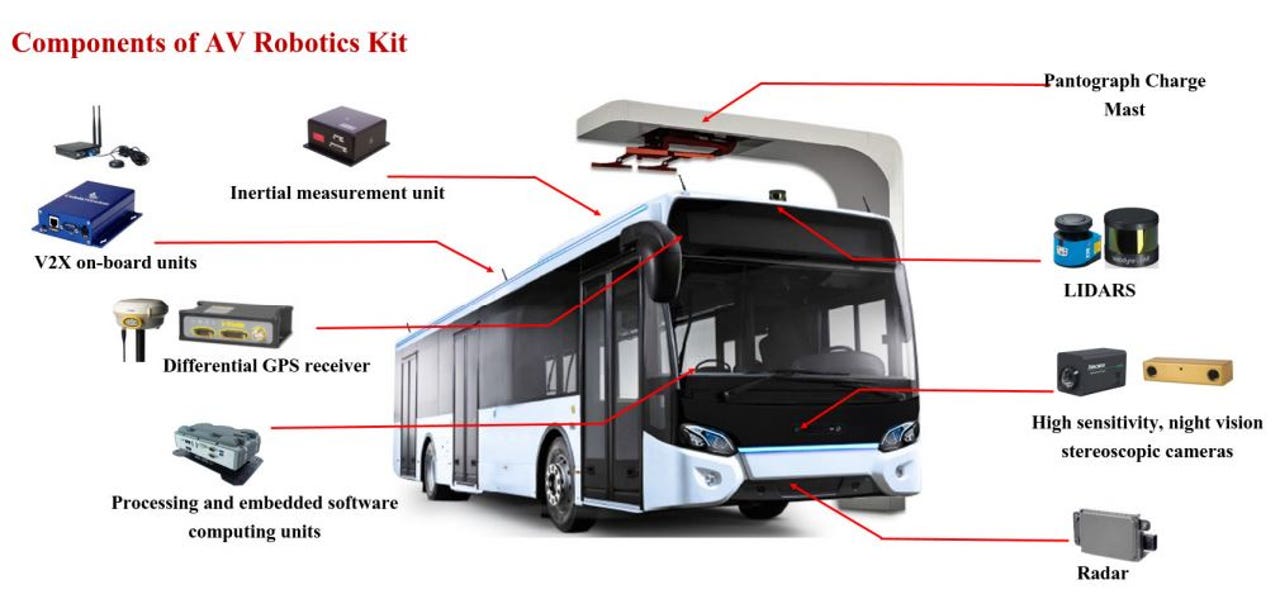Singapore to pilot self-driving buses, but crash puts focus on safety


Singapore's Land Transport Authority (LTA) says it will be piloting the use of self-driving buses as well as conducting research to improve real-tine monitoring of the national rail system.
It signed an agreement to partner the Nanyang Technological University (NTU) on joint research initiatives to improve the country's rail networks, with plans to develop a real-time monitoring prototype to identify early signs of defects. The transport authority said this would involve the use of fault diagnostic capabilities that could be tapped anytime without any disruption to train operations.
LTA and NTU also would be running pilots involving two driverless 12-metre buses, LTA said in a statement Wednesday.
Latest news on Asia
The two projects would be led by the LTA-NTU Transport Research Centre, which was set up in November 2015 to run research and technical trials using advanced technologies in the local industry.
The trials would include fixed and scheduled bus services for intra- and inter-town travel, said LTA, which added that it would partner the Energy Research Institute @ NTU to develop autonomous bus technologies. The latter would create and test the self-driving vehicle technology using two electric hybrid buses.
It also would implement intelligent sensors on existing buses and build an autonomous system to navigate the vehicles through local traffic and climate conditions, facilitating a safe and efficient journey.
According to the transport authority, the driverless buses would move along pre-determined test routes within thw Jurong Innovation District and these later could be extended to carry commuters from NTU and Cleantech Park to Pioneer MRT station.
The two test buses would feature charging technologies that allow the vehicles to be recharged when they arrive at a bus depot or at bus-stops, LTA said.
NTU's chief of staff and vice president of research, Lam Khin Yong, said: "Current efforts worldwide have been focused on cars so this autonomous bus trial is the first-of-its-kind in Singapore that will aim to improve road safety, reduce vehicle congestion, alleviate pollution, and address manpower challenges."
LTA's announcement comes just a day after a crash involving an autonomous car owned by startup nuTonomy, putting a focus on road safety.
The autonomous software company, which was running tests of its vehicles in the One-North business district, said two engineers were in the car at the time of the accident, with the vehicle travelling at "a low speed" when it hit a lorry. It added that one engineer was seated behind the wheel, but could not say if the safety driver had taken control of the car during the time of the accident.
It said it was looking into the cause of the incident, which also was being investigated by local police and LTA. No one was hurt in the accident.
The transport regulator just this week had released a document detailing the use of One-North as a testbed for autonomous vehicles and associated technologies. The whitepaper outlined the infrastructure that had been put in place to support on-road trials, including CCTVs at 20 locations to monitor the behaviour of the vehicles, as well as the implementation of DSRC beacons at 10 road junctions to broadcast data such as traffic light signals and road conditions.
The LTA document also highlighted a "safety framework" where all autonomous test vehicles were required to go through basic safety demonstration tests before being allowed on test routes in One-North. Safety drivers also must be in the vehicles and ready to assume control of the cars when needed.
While details behind the crash on Tuesday were still being investigated, an incident that resulted in the first injury involving Google's autonomous vehicle was reportedly the result of careless driving on the other, human, party.
In a 2015 blog post, director of the company's self-driving project Christ Urmson said its vehicles were hit "surprisingly often" by distracted drivers.
nuTonomy in August launched a trial in Singapore offering the public self-driving taxi rides, where passengers could travel from specific pickup and dropoff points within the 2.5 square-mile One-North business district. In September, it signed an agreement with Southeast Asian ride-sharing operator, Grab, to extend the public trial to the latter's customers.